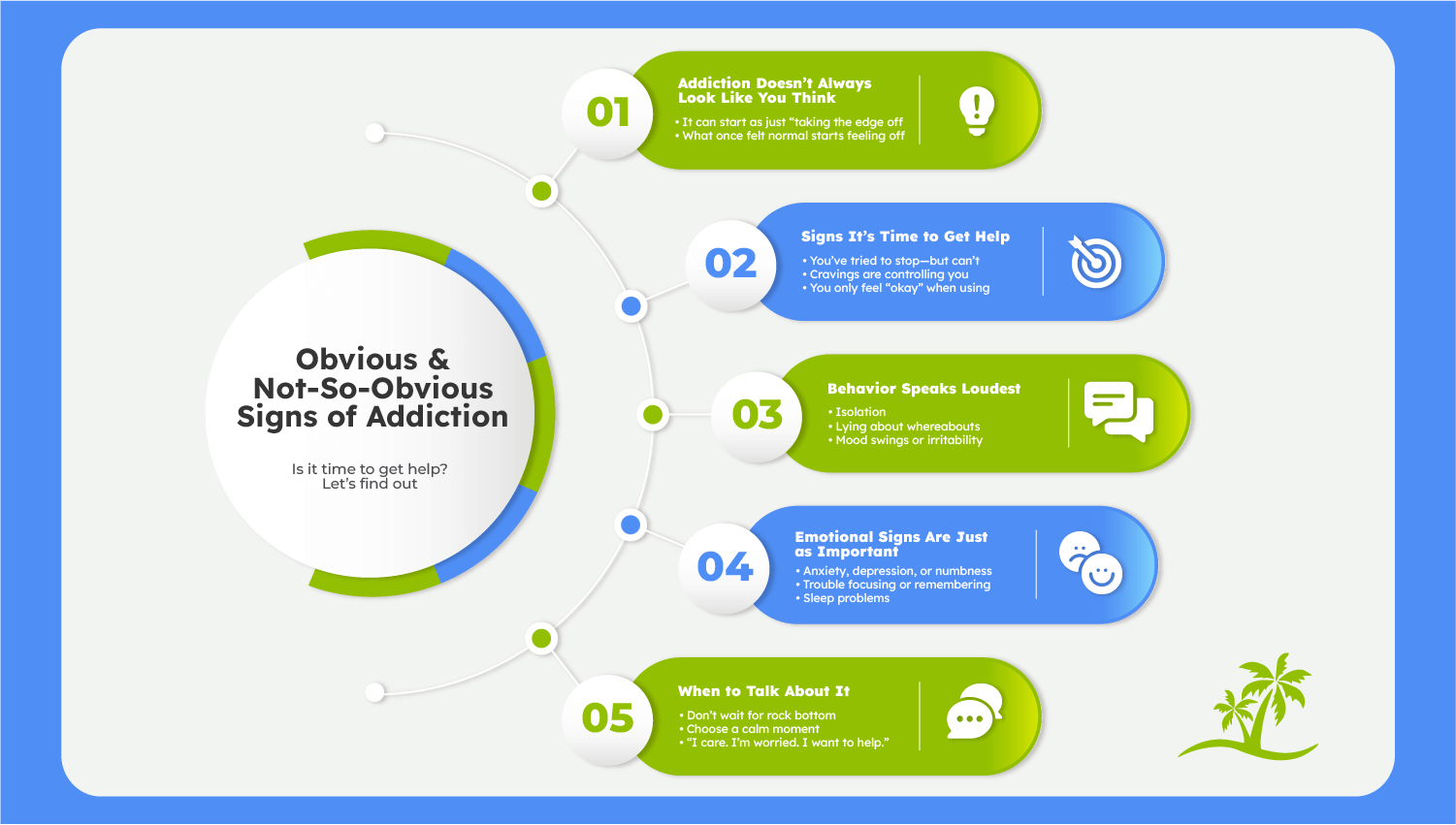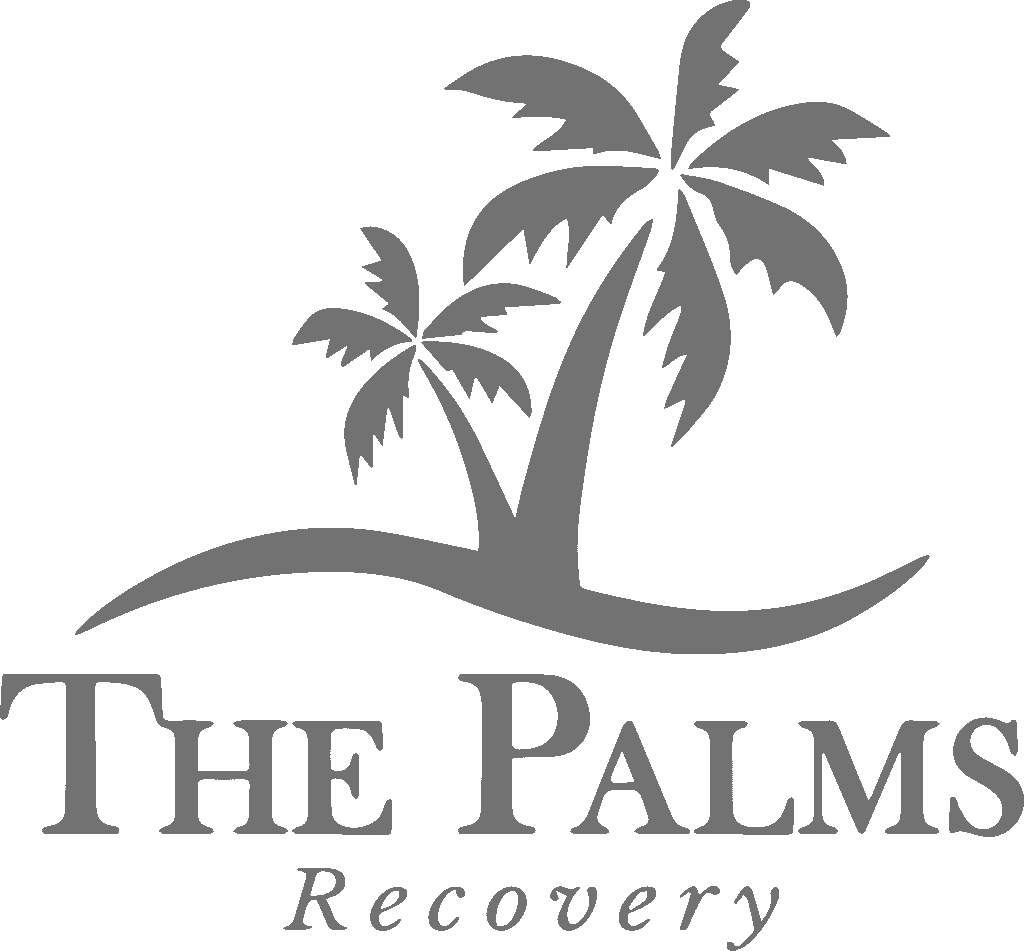Can you recognize the signs of addiction? Addiction doesn’t always crash into a person’s life. Sometimes, it creeps in quietly—a few drinks to take the edge off, a pill to sleep better, or something to manage stress. It feels normal… until one day it doesn’t.
Maybe you’re here because something doesn’t sit right. Maybe it’s about someone you love. Or maybe it’s about you.
Either way, this is a safe space to ask the question: Is this addiction?
Let’s explore what it really looks like—especially the signs of addiction that are easy to miss. The sooner you notice these signs, the sooner you can take action.
Signs It’s Time to Get Help: When Substance Use Turns to Addiction
Not all warning signs of addiction wave red flags. Some appear slowly—barely noticeable at first.
Someone might still show up to work, smile in public, and seem okay. But in private, they’re trying to cut back and can’t. They promise, “this is the last time,” but it never is.
Early signs of addiction include:
- If stopping feels impossible
- If cravings start to take control
- If using becomes the only way to feel “okay”
Control matters more than quantity. When it’s no longer a choice, help is needed.

What are the Behaviors of an Addict?
People with addictions may say they’re fine—but their behavior tells another story.
1. Behavior Doesn’t Lie (Even When Words Do)
Catching these changes in behavior early can allow you to stop addiction before it gets worse. What are the most subtle behaviors of an addict? You might notice your loved one pulling away, missing commitments, or acting more irritable. Maybe they lie about where they’ve been or don’t seem like themselves anymore.
These subtle changes are often early signs of addiction, even if they don’t look dramatic.
2. Mental and Emotional Changes Are Just as Important
Addiction isn’t only physical—it affects emotions, focus, and relationships.
Mood swings, trouble sleeping, anxiety, depression, forgetfulness, and emotional numbness can all be part of the picture. These are often brushed off as stress or burnout.
If someone no longer feels like themselves more often than not, it’s time to pay attention to these signs of addiction.
When to discuss addiction with someone.
If your gut says something’s off, don’t ignore it.
You don’t need to wait for things to fall apart. The earlier the conversation happens, the better. If you’ve been wondering whether to say something, that’s your answer.
Is It Time to Get Help?
If you’re here, reading this, it probably is.
The signs of addiction aren’t always loud. Sometimes they whisper. But once you recognize them, you can choose to act and get help. If you would like additional resources we recommend reading: How to do an intervention for someone you love.
You Don’t Have to Do This Alone
At The Palms Recovery, we’ve walked with many families through moments just like this.
You don’t need all the answers. Just reach out.
Talk to us. No pressure. No judgment. Just people who care.





